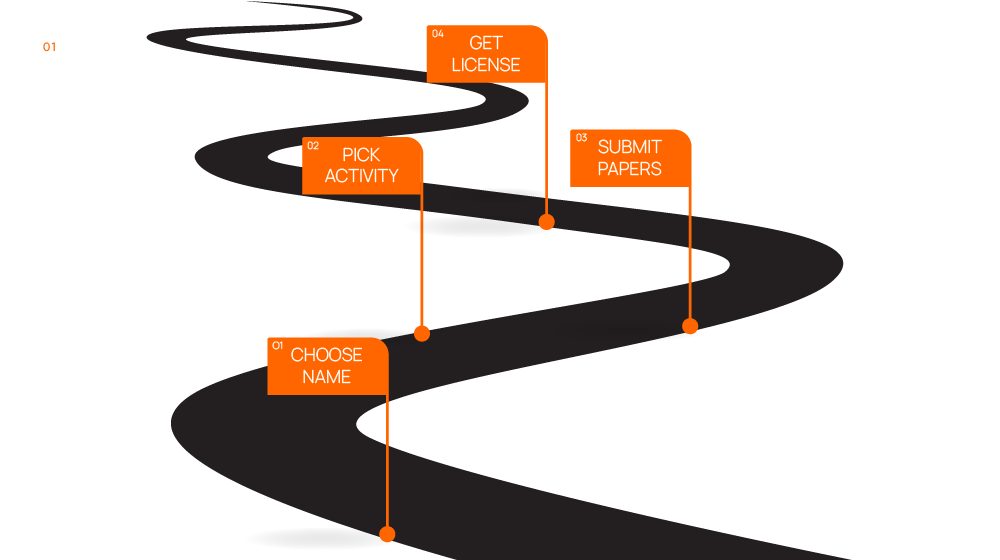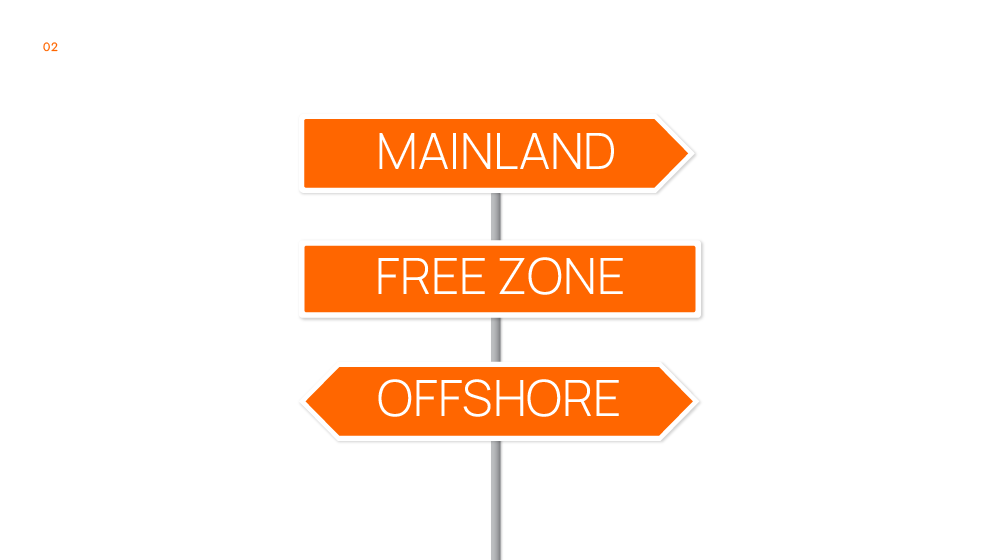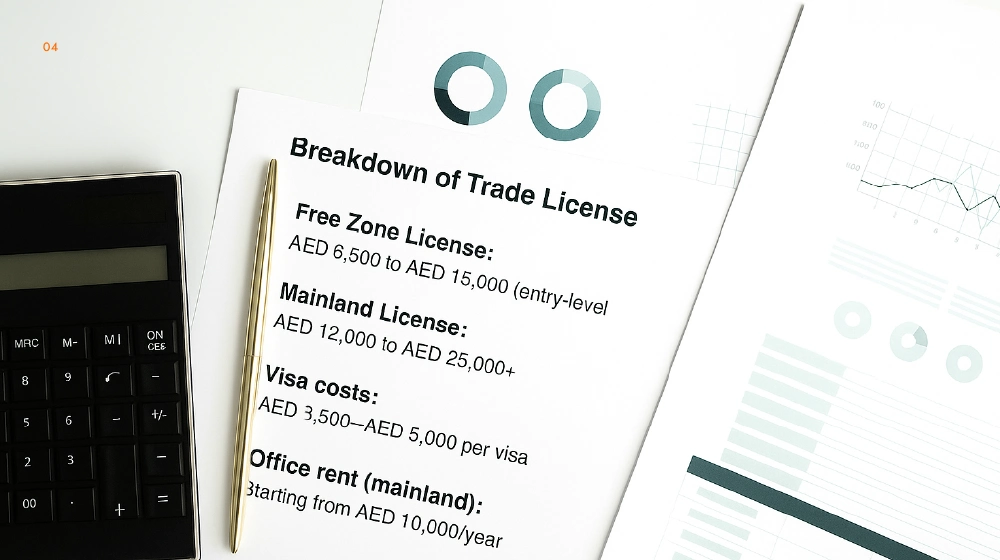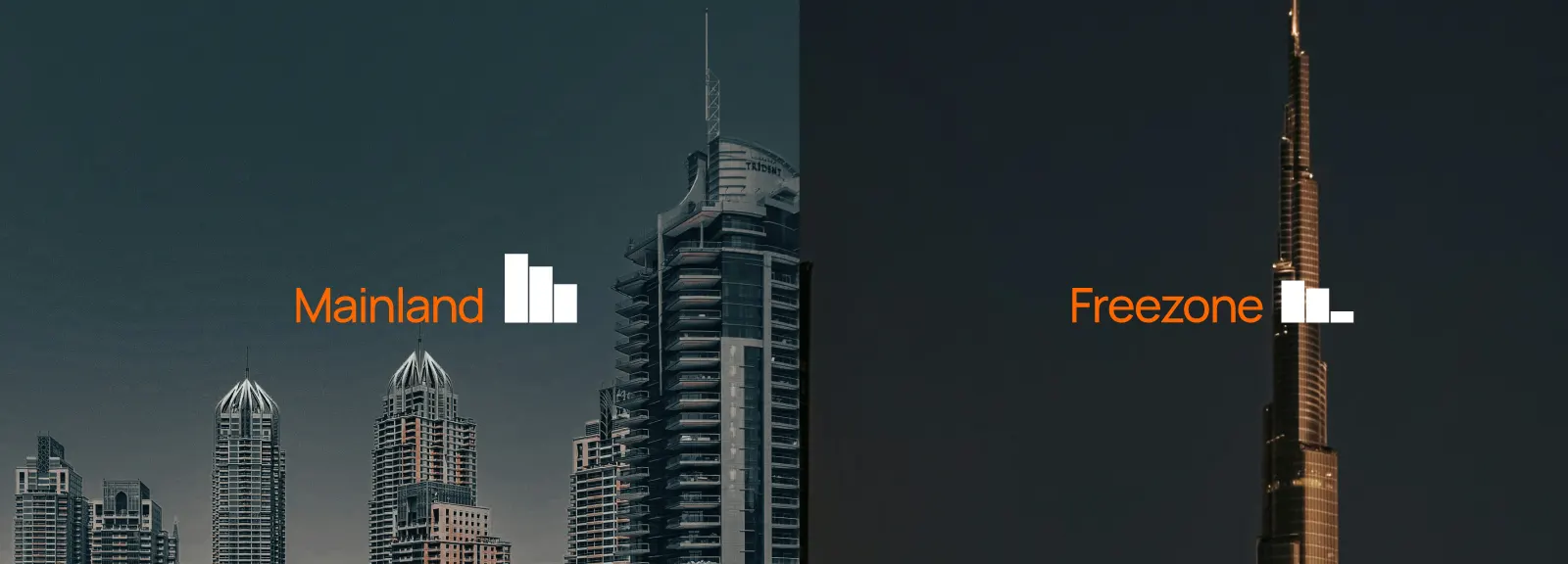Setting up a business in Dubai has always been an attractive prospect for foreign investors. But in 2025, it's become more streamlined, more accessible, and much more aligned with the needs of expat entrepreneurs. If you're looking for clear, up-to-date, and actionable guidance on how to get a trade license in Dubai, this blog will walk you through everything without skipping over the details that matter.
We’ll cover the exact steps to obtain a trade license, explain the structures available (mainland, free zone, offshore), and break down the cost, timeline, and legal requirements. You’ll learn what types of licenses are available, how expat ownership works, what documents are needed, and how to move from license approval to opening your UAE bank account. If you’ve been asking, “How do I get a trade license in the UAE?”, you’re in the right place.
Table of Contents
Why Dubai is the #1 Place for Expat Entrepreneurs in 2025
Dubai remains one of the most pro-business destinations in the world. And in 2025, it’s even more attractive for expat entrepreneurs looking to establish a business in a low-tax, high-growth environment.
The UAE continues to top global rankings for ease of doing business, and Dubai specifically has become a magnet for entrepreneurs thanks to its:
- 0% corporate tax in many free zones (provided income does not cross AED 375,000 or fall under the scope of Qualifying Income in mainland settings)
- Full foreign ownership rights for most business activities
- No restrictions on capital repatriation
- Seamless digital business setup processes
- And a high standard of living with excellent schools, healthcare, and global connectivity
In 2025, Dubai has gone further by simplifying its visa options for expats. The Green Visa now allows freelancers and investors to sponsor themselves without a local employer, while the Golden Visa grants 10-year residency to high-performing entrepreneurs, investors, and professionals.
According to the UAE Ministry of Economy, over 94% of all companies in the UAE are small and medium enterprises (SMEs), which shows how deeply entrepreneurship is embedded in the country’s growth strategy.
For expats who want to launch quickly and compliantly, the most important thing to understand is how to get a trade license in Dubai. Whether you’re going for a mainland setup or registering in a free zone, the trade license is the legal backbone of your business. Without it, you can’t open a bank account, get a visa, rent office space, or operate legally in the UAE.
How to Get a Trade License in Dubai (Step-by-Step Guide for Expats)

If you’re wondering how to get a trade license in Dubai in 2025, this step-by-step guide will walk you through everything you need to know as an expat entrepreneur. Whether you plan to register in the mainland or one of Dubai’s 40+ free zones, the licensing process is now more streamlined than ever especially with government digitization and business setup reforms under the D33 economic plan.
This process applies to most business types in 2025, including ecommerce, consultancy, general trading, and services. Let’s break it down:
1. Choose Your Business Activity
Your first step in figuring out how to get a trade license in Dubai is to pick the right business activity. The Department of Economy and Tourism (DET) in Dubai maintains a comprehensive list of over 2,000 business activities, ranging from management consultancy to crypto services. Each free zone has its own list, so if you’re planning to operate in Dubai Internet City, DMCC, or Meydan Free Zone, you’ll need to cross-check with their approved sectors.
For example, ecommerce businesses in 2025 are booming under the E-Trader License (offered by DET), while fintech startups often register in DIFC or ADGM. If your business activity doesn’t match your trade license type, you’ll face complications later during visa issuance or banking setup.
2. Select a Jurisdiction
The next major step in how to get a trade license in Dubai is picking the right jurisdiction:
- Mainland (DET jurisdiction): Lets you do business across the UAE and internationally. Allows unlimited visas, with more flexibility in office locations.
- Free Zone (over 40 available): Perfect for expats who don’t need to do business directly within the UAE market. Many free zones offer 100% foreign ownership and simplified licensing in 2025.
- Offshore: Best for asset protection, holding companies, or international trade but you can’t operate inside the UAE.
Most expats looking to reduce costs while keeping full control of their business choose a free zone for their Dubai trade license especially zones like IFZA, Meydan, and SPC Free Zone which now issue licenses within 24–48 hours.
Structuring your company smartly can lead to significant savings. See how foreign-owned companies legally reduce taxes in the UAE without cutting corners.
3. Decide on the Legal Structure
This affects ownership, liability, and document requirements. When considering how to get a trade license in Dubai, choose one of the following:
- Limited Liability Company (LLC): Popular for mainland businesses.
- Sole Establishment: Used by freelancers and solo consultants.
- Civil Company: For professionals like doctors or engineers.
- Free Zone Company (FZE for single shareholder / FZCO for multiple): Standard in most free zones.
- Branch of a Foreign Company: For established brands entering the UAE.
Each structure has its own compliance requirements, especially after the new UAE Corporate Tax regulations that came into effect in June 2023.
4. Reserve a Trade Name
Trade name approval is a formal step in how to get a trade license in Dubai. Your business name must reflect the nature of your activity and follow UAE guidelines. No religious or political references, and no duplication of existing registered names.
Once approved, you’ll receive a Trade Name Reservation Certificate which is valid for 6 months.
Now, before locking in your trade name, make sure it aligns with Dubai’s current naming regulations. This quick guide on how to make sure your Dubai trade name is compliant in 2025 can save you from delays or rejections.
5. Apply for Initial Approval
This is a No Objection Certificate (NOC) from the licensing authority. It shows they have no objection to your business idea and allows you to proceed with documentation. In 2025, most free zones process this digitally within 24 hours.
Initial approval is essential for bank account openings and immigration file setup.
6. Secure Office Space or Flexi-Desk
The UAE mandates a physical address for all license holders. For mainland licenses, this means renting a commercial office registered with Ejari. Most free zones now offer flexi-desk packages that include address proof, visa quota, and mail handling, all included in your trade license Dubai 2025 setup.
Ejari. This is a required step in how to get a trade license in Dubai, as authorities won’t issue a license without an address.
7. Draft the Legal Documents
Legal documentation depends on your jurisdiction and legal structure.
The key legal documents typically include:
- Memorandum of Association (MOA): Defines business ownership and responsibilities.
- Local Service Agent (LSA) Agreement: Only required if you’re a mainland sole proprietor with no UAE partner.
- Board Resolution or Certificate of Incumbency: For branch setups or foreign companies.
Free zones usually have templated versions of these to simplify the process.
8. Submit the License Application
Once your documents are ready, submit them to the DET (for mainland) or the respective free zone authority. Most free zones now allow full digital submission through their portal, and some complete everything including visa and corporate bank account setup within a single dashboard.
If you’ve been wondering how to get a trade license in Dubai without traveling, this is it. Many zones offer remote setup options in 2025, allowing you to get fully licensed while outside the UAE.
9. Pay the License Fees
The cost of your Dubai trade license depends on the number of activities, visa slots, and office space. Expect to pay anywhere from AED 5,750 (for basic free zone packages) to AED 25,000+ for more complex setups.
Some free zones in 2025 are offering 0% license renewal fees for the second year if you sign a two-year package upfront. This can save you up to 30% in total costs.
For a full cost breakdown, check Section 7 of this guide.
10. Receive Your Trade License
Once approved, you’ll receive your trade license certificate via email and/or courier. At this point, you can open a corporate bank account, apply for investor and employee visas, register for VAT (if applicable), and start trading legally.
This is the final step in how to get a trade license in Dubai, but the beginning of your entrepreneurial journey. It also unlocks access to key services like the UAE Golden Visa (if your business qualifies), local supplier accounts, and B2B partnerships.
Mainland, Free Zone, or Offshore? Which Structure is Right for You?

Choosing the right jurisdiction is one of the most critical decisions when figuring out how to get a trade license in Dubai as an expat entrepreneur.
Mainland Setup
If you want maximum access to the UAE market, the mainland company structure is key. Regulated by the Department of Economy and Tourism (DET), the mainland allows you to operate across all seven Emirates without restrictions. If you’re researching how to get a trade license in Dubai, and plan to serve local clients directly, this is often the go-to option. Keep in mind:
- Requires a physical office with an Ejari tenancy
- Some activities may still require a UAE national as a Local Service Agent
- Suitable for B2C businesses, agencies, and retail operations
Free Zone Setup
For entrepreneurs prioritizing full ownership, speed, and a business-friendly environment, free zone company setups offer a fast-track route to getting a trade license in Dubai. In fact, many expats exploring how to get a trade license in Dubai find free zones the most cost-effective and flexible entry point. Key advantages include:
- 100% foreign ownership
- No import/export taxes within the free zone
- Fast setup time (some zones process licenses in 2–5 business days)
- Trade limitations: you cannot sell directly to the mainland without a local distributor
If your operations are mostly international or online, this is often the best answer to how to get a trade license in Dubai without local ownership complications—especially when comparing Dubai freezone vs mainland options.
Offshore Setup
For those exploring how to get a trade license in Dubai for asset management or international structuring, offshore entities may seem attractive. But it’s important to note that offshore companies cannot operate locally in the UAE and do not offer residence visas. They are ideal only if:
- You don’t need a physical office
- You don’t require a UAE residency
- Your goal is to hold assets or register intellectual property
While offshore entities are technically outside the scope of most trade license setups, they remain a legal structure that expats consider when researching how to get a trade license in Dubai from an international strategy standpoint.
The legal structure you choose can directly impact your taxes, expansion, and ownership flexibility. Learn how to pick the right legal structure for business growth in the UAE.
What Type of Trade License Do You Need?
When researching how to get a trade license in Dubai, one of the first questions you’ll come across is: What are the three types of trade licenses in Dubai? The answer is:
Commercial License
For trading businesses, buying, selling, importing, and exporting goods. If you’re exploring how to get a trade license in Dubai to run an e-commerce store, retail outlet, or import/export business, this is usually the right fit.
Professional License
For service-based businesses such as consulting, marketing, education, and legal services. Many freelancers and solo entrepreneurs start with a professional license when learning how to get a trade license in Dubai with minimal overhead and full ownership.
Industrial License
For manufacturing or industrial activities. If your plan involves factories, production units, or packaging, understanding how to get a trade license in Dubai under this category is essential.
Each license type has sub-categories depending on your business activity. Choosing the correct one is a non-negotiable step when figuring out how to get a trade license in Dubai that aligns with your goals and operations. The wrong choice can lead to delays, extra fees, or even rejection. So take this step seriously when learning how to get a trade license in Dubai as an expat entrepreneur.
What Documents Do You Need to Get Started?

When researching how to get a trade license in Dubai, one of the most important things to understand is the paperwork involved. Whether you’re an expat, freelancer, or investor, gathering the correct documents early is key to avoiding delays.
Here’s what you’ll need:
- Passport copies of shareholders and managers
- Entry stamp or UAE residence visa copy (if applicable)
- Passport-size photo with white background
- Business activity details
- Trade name reservation certificate
- Initial approval certificate
- Memorandum of Association (MOA) or Local Service Agent (LSA) agreement
- Tenancy contract (for mainland businesses)
These are standard Dubai trade license requirements, and having them in order is essential when figuring out how to get a trade license in Dubai without complications.
For those seeking a trade license in Dubai for foreigners, it’s even more critical to ensure every document meets the required standards. Any missing or incorrect paperwork can lead to rejection, slowing down your progress.
Being prepared with the right documentation is one of the smartest ways to streamline your experience and reduce stress while navigating how to get a trade license in Dubai.
Sponsor or No Sponsor? Understanding the Rules in 2025
A major question when exploring how to get a trade license in Dubai is whether you need a local sponsor. As of 2025, the rules have become more favorable for expats. Most business activities in Dubai no longer require a UAE national sponsor, especially if you’re setting up in a free zone or choosing a permitted mainland activity.
This shift has made it easier than ever to secure a trade license in Dubai for foreigners, allowing 100% foreign ownership in many sectors. Still, it’s important to check the Dubai trade license requirements for your specific business activity. Certain strategic sectors like defense, oil & gas, or government contracts may still require a UAE national as a Local Service Agent.
If you’re wondering how to get a trade license in Dubai without needing a sponsor, free zones are your best bet. But even for mainland setups, many activities are now sponsor-free. Always verify with authorities to ensure your category qualifies.
Understanding this aspect is essential when figuring out how to get a trade license in Dubai legally and smoothly as a foreigner.
We go into detail about industries that still require a local partner in Dubai.
How Much Does It Cost to Get a Trade License in Dubai?

If you’re wondering how much does it cost to get a trade license in Dubai in 2025, the answer depends on location, business type, and visa package. Here’s a basic overview for those learning how to get a trade license in Dubai:
- Free Zone License: AED 6,500 to AED 15,000 (entry-level flexi desk)
- Mainland License: AED 12,000 to AED 25,000+
- Visa costs: AED 3,500–AED 5,000 per visa
- Office rent (mainland): Starting from AED 10,000/year
Some free zones offer all-inclusive packages to simplify how to get a trade license in Dubai, but always check if visa allocations or renewal fees are included.
According to official reports, nearly 19,000 new business licences were issued in Dubai during the first quarter of the year, out of approximately 40,000 nationwide.
As mentioned, costs can vary based on your company type, jurisdiction, and visa needs. Here’s a detailed breakdown of Dubai license costs for investors so you can plan better in 2025.
How Long Does It Take to Get a Trade License in Dubai?
The timeline for how long does it take to get a trade license in Dubai is one of the most common concerns. Here’s a rough guide:
- Free Zone License: 3 to 7 working days
- Mainland License: 7 to 14 working days
- Offshore License: 10 to 15 working days
This timeline assumes all your documents are in order. Delays happen mostly due to trade name rejections, incomplete forms, or Ejari-related issues.
So if you’re thinking, “How do I get a trade license in the UAE without delays?”, the answer lies in preparation.
Conclusion

Navigating how to get a trade license in Dubai as an expat isn’t something you want to leave to chance. Every decision from activity selection to visa application, affects your long-term operations.
At GCG Structuring, we specialize in helping expat entrepreneurs get started the right way. Whether you want a fast free zone setup or a fully operational mainland license, we guide you at every step. No hidden costs. No time wasted.
If you’re ready to register your business, we’ll help you get it done quickly, compliantly, and without confusion.
Book a free consultation with GCG today and start your journey toward building a successful business in Dubai.
FAQ
1. 0 How do I get a trade license in the UAE as an expat entrepreneur?
To get a trade license in the UAE, you’ll need to choose a jurisdiction (mainland or free zone), decide your business activity, reserve a trade name, and submit your application with the relevant documents. For expat entrepreneurs wondering how to get a trade license in Dubai specifically, the process is simplified through business setup consultants or free zone authorities. Whether you’re setting up on the mainland or in a free zone, knowing how to get a trade license in Dubai can save you both time and legal hassle.
2. 0 What are the three types of trade licenses in the UAE?
The three main types of trade licenses in the UAE are Commercial, Professional, and Industrial. When researching how to get a trade license in Dubai, it’s essential to identify which category your business falls under. Choosing the correct license type is a critical step in how to get a trade license in the UAE as an expat. Dubai’s business setup authorities will ask for this during your application, and it directly impacts your trade license cost and visa eligibility.
3. 0 How long is a trade license valid in the UAE?
A UAE trade license is valid for one year and must be renewed annually. As you explore how to get a trade license in Dubai, you’ll see that renewal terms and fees vary depending on your business type and location. Staying compliant with your renewal ensures you maintain your trade license without penalties. Most expat entrepreneurs who learn how to get a trade license in Dubai also set up automated reminders to renew it on time.
4. 0 How much does it cost to get a trade license in Dubai in 2025?
The cost to get a trade license in Dubai ranges from AED 6,500 to AED 25,000+, depending on whether you choose a free zone or mainland setup. Additional costs include visa fees and office space. Understanding these cost elements is a big part of learning how to get a trade license in Dubai as an expat entrepreneur. Some free zones offer bundled packages to make getting a trade license in the UAE more affordable.





